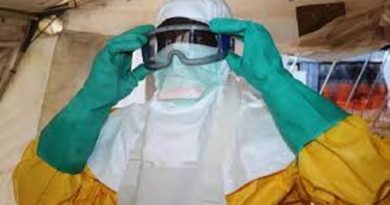Senate pledges support on Minamata Convention on mercury in Nigeria
As Nigeria set to ratify the Minamata Convention on mercury, Senate Committee on Environment has promised to accelerate law on its ratification, domestication and implementation of the Convention in the country.
Chairman, Senate Committee on Environment, Senator Oluremi Tinubu, disclosed this in Lagos on Wednesday February 15, 2017 during the awareness raising workshop for policy makers, academia and private sector organised by the Federal Ministry of Environment with the support of United Nations Industrial Development Organisation (UNIDO), United Nations Institute for Training and Research (UNITAR) and the Global Environment Facility (GEF).
Tinubu, who was represented by a member of the Senate Committee on Environment, Senator Foster Ogara, wondered why Nigeria is yet to ratify the Minamata Convention despite been part of the negotiations from the onset in 2010 and having signed the Convention the day it was adopted in Japan in 2013.
Tinubu called on the Federal Ministry of Environment to prepare the strategy and forward to the Executive so that the National Assembly can work on it as soon as the Executive pass it to them.
She went further, “In the 8th Senate, we are ready to accelerate the passage of law on the Minamata Convention on mercury.”
The lawmaker who regretted on why Nigeria missed out of some of the new initiatives introduced by GEF to address the use of mercury in artisanal small scale gold mining activities said Nigeria as a nation need to do better.
She reiterated the commitment of the Senate President, Senator Bukola Saraki to do anything possible to ensure sustainable development in the country.
Tinubu added that domestication of the Convention in the country is key and would allow the country to implement it so as to reduce the effect of mercury on the human and physical environment in the country.
Minister of Environment, Amina Mohammed, represented by the Deputy Director, Pollution Control and Environmental Health Department, Federal Ministry of Environment, Dr. Idris Goji, stressed that the role of policy makers, academia and private sector cannot be overemphasised in ensuring that Nigeria takes a lead in facilitating necessary capacity within its territory and the African region as whole in addressing mercury issues and the effective implementation of the Convention.
Mr. Oluyomi Banjo, Environment expert, UNIDO, Regional Office Abuja and West Africa, said legislators are important to all the articles of the Convention. “Government plays a very key role for all the 35 articles”.
Banjo added that the legislators are responsible for domestication and mainstreaming the Convention into national development programme.
The Minamata Convention on mercury was negotiated by the global community including Nigeria between 2010 and 2013, adopted and opened for signature on 10 October 2013 at a Diplomatic Conference in Kumamoto, Japan.
The Convention will enter into force once 50 countries ratified it. As at February 15, 2017, 128 countries have signed it while 38 have ratified it including 17 African countries.
The Convention aims to promote the use of alternatives and Best Available Techniques (BAT) and Best Environmental Practices (BEP) across a wide range of products, processes and industries where mercury is used, released and emitted.




